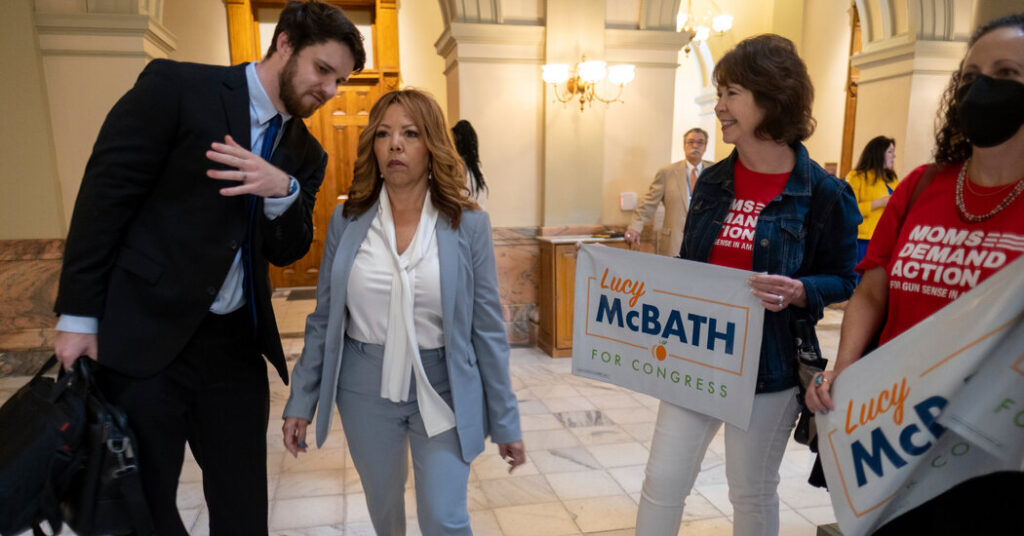
State Representative Donna McLeod, who is campaigning energetically but lags in fund-raising, is also running in the contest, which could head to a runoff.
The intraparty battle comes roughly a year and a half after Georgia, a longtime Republican bastion, not only helped deliver the presidency to the Democrats, but also elected two Democratic senators, cementing the party’s Senate majority. Those victories were propelled by a broad constellation of constituencies, including a surge in turnout by Black Georgians and a thorough rejection of Donald J. Trump in the state’s diverse suburbs.
Ms. McBath is a Black woman from the suburbs of Atlanta who has been embraced by several liberal organizations and some progressives like Senator Elizabeth Warren of Massachusetts, but she is not typically seen as a left-wing candidate. Ms. Bourdeaux, a white moderate, was also skilled at appealing to those in historically center-right territory. Both represent, in many ways, parts of the sprawling Biden coalition that Democrats are straining to hold together headed into a challenging midterm election season.
Ms. Bourdeaux is regarded as the more centrist candidate in the race. She joined other House moderates, for instance, in saying she would not support a budget resolution meant to pave the way for President Biden’s sweeping social policy package until a bipartisan infrastructure measure became law, a stance that outraged many Democrats who had planned to pair the priorities.
But in contrast to Democratic primaries elsewhere, the primary contest in Georgia’s Seventh District has not been a searing ideological fight over the direction of the party, or a race dominated by negative advertising. Both women emphasize issues like protecting abortion rights and voting rights, and they received a joint endorsement from the Planned Parenthood Action Fund.
Yet there are clear stylistic and strategic differences as they vie to represent a racially and ethnically diverse district.
Ms. McBath, widely regarded as the front-runner, is running on her personal story, recently earning national attention from prominent Democrats, including former Secretary of State Hillary Clinton, for her starkly emotional testimony about her struggles with pregnancy as she advocated for abortion rights.

